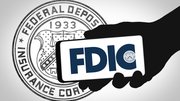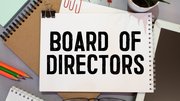Blog
How vulnerable are ATM PINs? You might be shocked.
September 27, 2012 by Thomas Hailey — Director of Business Development, CORD Financial Services
Today, logins and passwords are everywhere. Work, school, home, bank — even a garage can have a passcode! In an effort to remember all of this information, what do people do? they choose simple, easily remembered logins, passwords and PINs and use them over and over.
Some of the information we're trying to protect is not crucial wellbeing (online class logins, membership logins … etc.) But when it comes to financial security, cardholders need to be reminded to be diligent in protecting their identity.
A recent study by DataGenetics offers staggering observations on password predictability, including the statistic that of 3.4 million four-digit passwords used in the study, 26.83 percent could be guessed by trying just 20 combinations!
There are 10,000 possible combinations that the digits 0-9 can be arranged in to create a four-digit PIN, yet nearly 30 percent of cardholders choose some of the most easily guessed PINs (and wouldn't it be interesting to know how many of them work in the ATM industry!)
Following are three simple steps that consumers can take to avoid common mistakes made when selecting a four-digit debit card PIN and to increase their financial security. FIs and others close to the ATM industry can provide a meaningful public service by starting — or stepping up — programs to remind consumers of these safeguards:

1) Don't be a "top 20" victim
The most popular password is 1234 (10.71 percent of all PINs in the dataset). Anyone using this pin should change it TODAY! At right is the full list of the 20 most frequently used PINs. Consumers can improve their financial security by making sure their PIN isn't one of them.
2) Patterns are nice, but not for your PIN
If a PIN makes a straight or diagonal path across a keypad, a thief could win big at "Passcode Bingo." Cardholders also should avoid repeating numbers (i.e., 1212, 1313, 4444 — all of which are found on the top 20 list).
3) Being odd is a good thing
An interesting fact from the DataGenetics study is that people seem to prefer even numbers over odd. For example, 2468 was much more popular than 1357. The one exception to this rule were PINs constructed with the odd-number prefix of "19--", which can be interpreted as years. Every single PIN with this prefix occurred in the top 20 percent of the database.
Sources:
http://www.datagenetics.com/blog/september32012/index.html
http://mashable.com/2012/09/24/pin-number-top-20/
 ChatGPT
ChatGPT Grok
Grok Perplexity
Perplexity Claude
Claude












